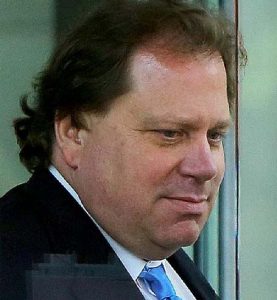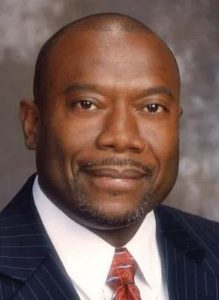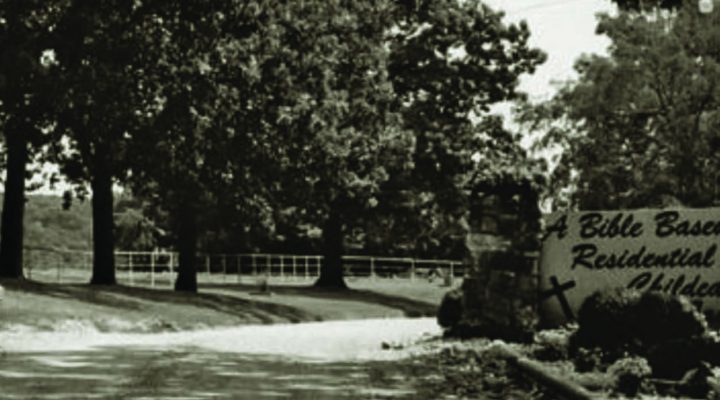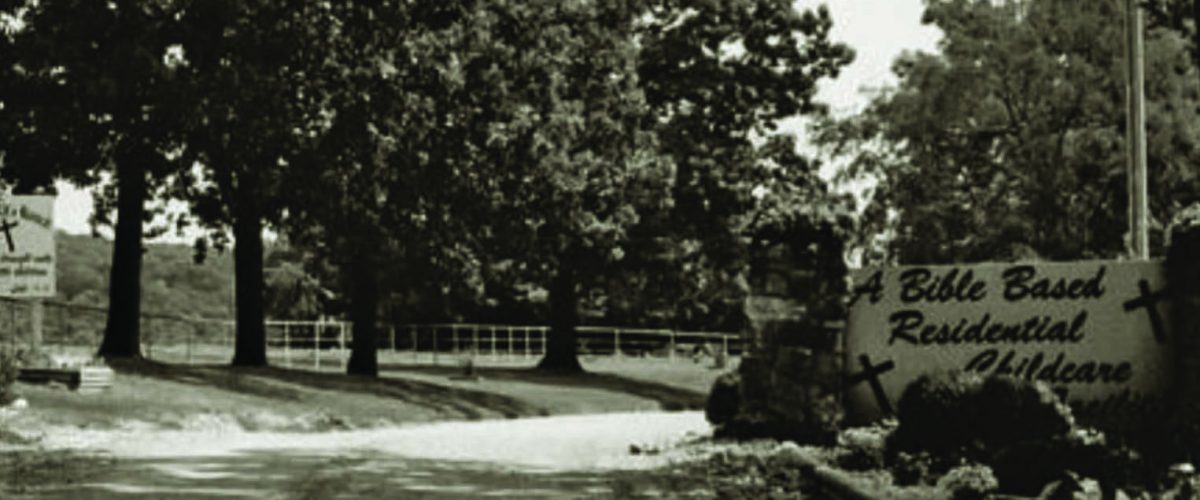Prior to its closure in 2016, the Lord’s Ranch was known for decades as a place where children ages 7 to 17 would receive “unparalleled” treatment in a “uniquely beautiful, peaceful and safe environment.” Staff would foster their psychological, emotional, behavioral and spiritual growth in a family owned and run facility in rural Arkansas. Parents could rest assured that while their children were away, sometimes for years, they were nurtured and protected by staff.
What better setting for care and rehabilitation than a nature-based, live-in facility, where children will have constant community and mentors around every corner who care about them?
Or so it seemed.
Below the surface of this dreamy image was an egregious system of child abuse, littered with adults who were aware of it, openly joked about or perpetuated it and punished children for telling their stories.
Fronted with the image of a beautiful, peaceful living facility, the Lord’s Ranch enticed families of children needing mental health, behavioral and spiritual care. Under the guise of expected treatment, the company was able to facilitate the transportation and housing of children across the United States who soon would be under the direct authority and control of child predators.
That sounds more like the story being told in a recent lawsuit filed by eight victims of child sexual abuse against the Lord’s Ranch and multiple members of its leadership who are alleged to have been directly involved in or complicit with abuses that happened there.
“Although the statute of limitations for these victims would have otherwise expired, this lawsuit is being filed under the Justice for Vulnerable Victims of Sexual Abuse Act.”
Although the statute of limitations for these victims would have otherwise expired, this lawsuit is being filed under the Justice for Vulnerable Victims of Sexual Abuse Act, which changes the statute of limitations for Arkansas victims of sexual abuse if they meet the criteria of being a “vulnerable victim” at the time of the crime.
This act is functioning as a revival window for adults who were victims of childhood sexual abuse and are now seeking justice for the crimes committed against them. This means action may be brought against “any party who committed sexual abuse” or whose “tortious conduct” caused the abuse, including the abusers themselves and any institutions responsible, even if the statute of limitations previously expired.
According to a 2013 Child Abuse Review examining disclosure of child sexual abuse, delayed disclosure of sexual trauma, especially childhood trauma, is common. Often, victims are not ready to disclose their experiences of abuse to another person until adulthood due to a myriad of factors, such as (but not limited to) post-traumatic stress, relationship to the perpetrator, fear of not being believed or fear of being blamed for what happened to them. Researchers also found boys take longer to disclose experiences of abuse than girls.
Many dynamics come into play in the disclosure of traumatic experiences like sexual abuse, so this act is allowing Arkansas victims another opportunity to come forward. The revival window closes Jan. 31, 2024.
According to the current lawsuit against the Lord’s Ranch, between the years of 1976 and 2019, the corporation was a place where children were “regularly abused physically, psychologically and sexually.” The suit is being taken against the company and numerous relevant persons and entities, including employees who are alleged to have been perpetuators of sexual abuse at the Lord’s Ranch.
The defendants
The Lord’s Ranch Christian Boy’s Home Inc. was a nonprofit in Arkansas from around 1984 until its closure in 2016. Bud and Shirley Suhl founded the corporation in 1976 to counsel children and assist them in “growing emotionally, spiritually and behaviorally.” The corporation and its entities owned more than 1,100 acres of land, primarily located in Warm Springs, Ark.

Ted Suhl
Bud Suhl was the owner and executive director of the Lord’s Ranch and its entities. Shirley Suhl was an owner and senior director, among other senior positions. Their son, Ted Suhl, served as deputy director under his father, then later served as an owner and executive director.
Emmett Presley was a counselor at the Lord’s Ranch and served as a senior director of the Lord’s Ranch entities and facilities and as the director of social services. Presley is alleged to have committed repeated and vulgar acts of sexual and psychological abuse during his employment at the Lord’s Ranch, using his position as a counselor and director to do so without reprimand.

Alonza Jiles
Alonza Jiles also served as a senior director of the Lord’s Ranch entities and facilities. The lawsuit alleges he and other staff members were made aware of Presley’s abuses on a multitude of occasions but did nothing to stop them and at times actively perpetuated further abuse.
‘Gaming the system’
What exactly happened at the Lord’s Ranch? The story is preceded by years of political, social and economic manipulation.
According to the lawsuit, defendants “led by Ted Suhl, were able to game the system for personal and financial gain through years of corruption, bribery, calculated political donations, legislative lobbying and invoking religious doctrine and cause where it suited them.”
In 2000, Suhl was appointed to the Arkansas Child Welfare Agency Review Board, where he was responsible for licensing child care facilities, including those owned by his own family. He was reappointed for a second term in 2004. According to the lawsuit, this position enabled him to “police himself and his criminal organization.”
From 2002 to 2008, the Lord’s Ranch entities received about $95 million in Medicaid funds from the state of Arkansas.
Between the years 1996 and 1997, he lobbied to keep state Medicaid funds “flowing” to the Lord’s Ranch entities. Then, from 2002 to 2008, the Lord’s Ranch entities received about $95 million in Medicaid funds from the state of Arkansas. This funding was continuously provided despite a 2007 study commissioned by state legislature, which found policies supporting residential medical care were “out-of-date with current medical opinion.”
From 2009 to 2014, the Lord’s Ranch received even more money — more than $135 million in Medicaid funds for inpatient and outpatient psychiatric services.
This continued support allowed the Lord’s Ranch to promote its services to even more children, some from outside Arkansas. Aside from children residing in Arkansas, the company formed bonds with states such as Alaska, Indiana, Illinois and Texas and facilitated the transportation of children from these states to their residential facilities in Arkansas.
Despite the 2007 study’s doubtful outlook on the efficacy of residential medical care programs, the Lord’s Ranch continued to advertise itself as a place where children would receive “the best possible treatment.”
Over the years, families sent minors to these facilities under the assumption that children were taken care of in a “family environment that promotes the development of trust and a feeling of security.” Along with therapeutic programs, the website advertised a company-wide emphasis on Judeo-Christian values and traditions, promising an environment shaped by Christian values and spiritual frameworks.
Previous legal woes
ProPublica reports that in 2016, a federal jury in Little Rock found Ted Suhl guilty of bribing a state official by disguising money as donations to a church to direct Medicaid payments to his program. The trial judge said Suhl used “religion to grease the skids of a bribe.”
Suhl pleaded not guilty to charges of fraud and bribery but was found guilty on four of seven counts and sentenced to seven years in prison. Three years into his sentence, then-President Donald Trump commuted it, called Suhl a “pillar of the community” and saying he ran “faith-based” health care treatment centers. Trump cited former Arkansas Gov. Mike Huckabee — a former Baptist pastor — and his daughter, now governor of Arkansas, as “strongly” supporting clemency for Suhl.
In 2006, the Arkansas Times reported Suhl had given thousands of dollars to Mike Huckabee’s campaigns in the past.
Ignoring the allegations
While Suhl was ensuring government funding continued to funnel into the Lord’s Ranch company bank accounts, he and other members of administration and staff were well aware children were being physically, psychologically and sexually abused, the lawsuit alleges.
According to the lawsuit, despite receiving “express reports” from children throughout the 1990s that Emmett Presley was using his role as a counselor to repeatedly sexually abuse them, he was not fired, reported to the police or reprimanded by the Lord’s Ranch. In fact, he was lauded on their website as a trusted and well-qualified professional.
Reports of alleged sexual abuse date back to the 1980s, and the lawsuit contends they were grossly ignored, mismanaged or perpetuated by multiple members of the staff at the Lord’s Ranch.
For example, in the mid and late 1980s, a staff member and social worker referenced in the lawsuit as “Staff Member W” is alleged to have sexually abused and raped a resident referenced as “Jane Doe 1” on multiple occasions beginning when she was 14 or 15 years old, eventually asking her to marry him when she turned 16. Jane Doe 1 allegedly reported this abuse to other staff, including Bud, Shirley and Ted Suhl, but was told that “Staff Member W loved her and she would learn to love him.”
Eventually, Jane Doe 1 was forced to marry Staff Member W “without her parents’ knowledge, consent or presence” in a wedding that was officiated by deputy administrator Alonza Jiles.
According to the lawsuit, she “ultimately escaped” the facility and was able to obtain a divorce but still suffers from trauma related to the experience.
Another female camper, “Jane Doe 2” in the lawsuit, allegedly was diagnosed with an STD after being sexually abused by a male staff member. Despite seeking care from and reporting the abuse to Mark Brown, the director of medical services (and relative of Bud Suhl), she was taken back to campus where the staff member continued to abuse her, the suit says. During the time of the alleged abuse, Jane Doe 2 was 10 to 13 years old.
This alleged abuse happened to children who had traveled from all around the country to seek medical care at the Lord’s Ranch.
Various state entities received reports of alleged abuse at the facility dating back to the late 1980s. In 1989, the Illinois Department of Children and Family Services discovered that untrained convicted felons were working as counselors there and that residents had been put in a local jail “for discipline.” In 1993, the Arkansas Department of Human Services received a report that a counselor “threw a boy against lockers and hit him in the head.”
Yet children continued to be funneled into the Lord’s Ranch facilities, which remained licensed as a Residential Childcare Facility.
John Doe 1, 2, 3, 4, 5, 6, 7 and 8
According to the lawsuit brought against the Lord’s Ranch and relevant persons and entities by John Does 1-8, the atrocities committed during their stays were not secluded to individual perpetrators.
“The staff at large allegedly worked together to hide what was happening and ensure it continued.”
Although some victims only experienced sexual abuse at the hands of one staff member, the staff at large allegedly worked together to hide what was happening and ensure it continued. Despite repeated attempts to alert staff members of the abuse, residents’ allegations were, at best, ignored. However, these eight survivors allege they were consistently met with ridicule, punishment and various forms of further abuse by the adults they confided in.
The lawsuit explains, “Children at the Lord’s Ranch lived in constant fear, knowing that they were alone in a remote, unfamiliar environment far from home and at the complete mercy of a sadistic staff. For many children, survival meant compliance with the physical and sexual abuse.”
The abuse ‘continued unabated’
During each of the following instances of alleged abuse, each Plaintiff was a minor.
John Doe 1’s residential stay at the Lord’s Ranch lasted from 1997 to 2000, during which he was “sexually molested and raped by Emmett Presley dozens of times, at nearly every weekly counseling session, over an approximately two-year period.” Presley’s alleged abuses included oral rape, genital molestation and child pornography.
When he told staff member Gary Jackson about what Presley had done to him, John Doe 1 was asked to re-tell his story in front of staff member Philander Kirk and senior administrator Alonso Jiles. However, the men called him a “liar” and threatened him with severe consequences should he “ever utter another word about the abuse.”
One week later, he says he was subjected to “violent physical restraint, causing him to break his collar bone,” as an alleged “warning” from the Suhl family to stay quiet.
For another year, the abuse continued unabated, he claims.
“Despite how shocking John Doe 1’s experience was, the other 7 John Doe narratives echo it.”
Despite how shocking John Doe 1’s experience was, the other 7 John Doe narratives echo it.
John Doe 2 was a resident from 1991 to 1995 during which time he claims he was orally raped and molested by Presley on multiple occasions starting in 1992. Two incidents occurred in the plaintiff’s bedroom. He was allegedly promised he could go home if he submitted to the abuse.
After the first rape, John Doe 2 told Executive Director Bud Suhl who “promptly” brought him into a room and made him “sit on the floor where he was surrounded by Bud Suhl and several other staff” (Ted Suhl, Philander Kirk, Tod Isaacs and Alonza Jiles). He was asked to repeat the allegation and told to “never repeat it again,” or else he would be forced to live in isolation in an abandoned building. After this, he was forced to sit on the floor “for over an hour” to “reflect upon his actions in shame.”
The abuse continued unabated.
John Doe 3’s stay at the Lord’s Ranch began in 1999, during which time he alleges he was sexually abused by Presley numerous times. The abuse included the fondling of genitals and oral rape and occurred in Presley’s car.
The abuse was reported to Gary Jackson, but nothing was done to stop it. The plaintiff also reported the abuse to his mother, who called the facility to inquire about the allegations. She was “told by the Suhl family that her son was emotionally disturbed and making up this lie” to get attention and go home early.
The abuse continued unabated.
John Doe 4 was at the Lord’s Ranch from 1995 until 2004. Shortly after his arrival, he was assigned Presley as his counselor. During a ride in Presley’s car with Presley and another older resident, John Doe 4, who was around 10 to 12 years old at the time, was allowed to drive the car. While he was driving, he alleges, Presley groped him and attempted to seduce him by promising to “take care of him,” buy presents and “let his mother come visit.”
After telling Presley he was uncomfortable, the older resident grabbed him “by the throat” and instructed him to allow Presley to “do what he wants to do,” after which Presley “performed oral sex on John Doe 4, then forced John Doe 4 to perform oral sex on him.” Presley then threatened him, saying he “won’t make it out of the ranch alive” if he told anyone what happened.
Despite this threat, he reported the abuse to Alonza Jiles, who took him to Ted Suhl to report the sexual assault and rape, but nothing was done. Presley continued to be his assigned counselor.
Suhl and Jiles “made the intentional decision to allow Presley to continue molesting and raping the Plaintiff for the next three to four years,” the lawsuit contends. During this time, he says he also was sexually assaulted by two other staff and an older resident. Each incident was reported to Jiles, but nothing was done to stop them from reoccurring. He claims he also was consistently subjected to physical violence during his tenure at the Lord’s Ranch, sometimes related to his experiences of sexual abuse.
Despite reporting these incidents to Jiles and other staff members, the abuse continued unabated.
John Doe 5 stayed at the Lord’s Ranch from 1994 to 1997. “Within weeks of his arrival,” his counselor, Presley, took him in his car to a secluded area on the Lord’s Ranch property to sexually abuse and orally rape him, including performing oral sex on John Doe 5, and forcing John Doe 5 to perform oral sex on him, the lawsuit says. To coerce him into submission, Presley asserted that he “had the power to send him home or send him to jail,” threatening consequences for non-compliance.
The abuse was reported to Gary Jackson, Alonza Jiles, Steve Marlow and Michael Gibson. Allegedly, Gibson’s reaction to the allegation indicated he was “already aware” Presley was abusing residents.
Until John Doe was eventually allowed to switch counselors, the abuse continued unabated.
John Doe 6 was a resident from 2000 to 2004, during which he claims he was sexually abused by Presley in his car numerous times. The abuse included the fondling of genitals, oral rape and attempted sodomy. He also experienced “relentless bullying and excessive physical violence by the staff, including and particularly Gary Jackson, Stan Jackson and Tyree Davis” who called him “fag,” “faggot” and “gay,” he says. This led to other residents bullying him in a similar manner.
In one instance, John Doe 6 says he was brought by Gary Jackson to a place called “the Unit” where residents were “brought for punishment.” At the Unit, he was put in a corner and Jackson spit in his face and verbally abused him.
That sexual abuse was reported in 2000 to 2001, but “nothing was done and Presley’s sexual abuse of (him) continued unabated,” the lawsuit alleges.
John Doe 7’s stay at the Lord’s Ranch lasted from 1999 to 2003, during which he says he was subjected to sexual assault and attempted oral rape at the hands of his counselor, Presley. He also experienced excessive physical abuse, which at one time resulted in his arm breaking. He alerted staff of his injury but never was taken to the hospital or given treatment.
The abuse continued unabated.
Finally, John Doe 8 stayed at the facility from 1991 to 1994. He says he was sexually abused on multiple occasions by two staff members, one of whom was Presley. Presley drove him to a secluded area and, after letting him drive the car, began to grope and fondle him, then orally rape him, he alleges. The abuse was reported to staff member Todd Isaacs, who asked him if he’d told anyone else, then promptly instructed him not to, he says.
After the report, as was the case for every other John Doe, the abuse continued unabated.
How? Why? The elaborate ruse
After reading the 55-page lawsuit detailing the horrific violence committed against children at the hands of Presley and the staff of the Lord’s Ranch, it is hard to believe so many adults could sit back and watch as children were being abused. It is unsettling to think that during this time, the public perception of the corporation — the perception that children would live at this facility and be nurtured and loved — was antithetical to the realities of suffering, torture and violation.
“Their elaborate ruse to funnel children into their treatment centers and money into their bank accounts was done under the façade of Christian values.”
For the entire duration of times addressed in this lawsuit, “it was well known amongst residents and staff” Presley was using his position of power to sexually abuse and exploit children. As the lawsuit explains, all defendants were “fully and absolutely aware that Presley was a savage and habitual child rapist,” yet made the “very conscious and intentional decision” to facilitate an environment that protected Presley and allowed him to continue committing his crimes.
And what makes it even more heinous? Their elaborate ruse to funnel children into their treatment centers and money into their bank accounts was done under the façade of Christian values.
If they looked like a corporation with Christian values, they would entice parents and guardians — families who just wanted their beloved to be cared for by staff who promised to be the hands and feet of Christ.
When more families endorsed the Lord’s Ranch under this assumption, more of the public trusted them. And as more trusted the Lord’s Ranch, more families felt comfortable sending their children there for prolonged residential stays.
As consistent amounts of children were sent into these facilities, many coming from states far away just to seek care, there was more and more reason to send Medicaid money to the Lord’s Ranch to help offset the costs. The children’s allegations were not ignored because they were untrue. They were ignored because the Lord’s Ranch would have lost funding if the state of Arizona knew about the extent of violence going on.
The results?
A consistent supply of children funneled straight into the laps of child predators who were funded to continue abusing them.
All in the name of the Lord.
Or was it done in the name of power? Greed? Selfish and perverse desires? Because when Jesus said in Mattew 19:14, “Let the children come to me,” he called upon the youngest of believers for a moment of blessing and care. To remind them how they are beloved, not to use his power to do vile, vicious things.
What is honorable to the Lord? The strength of the eight John Doe plaintiffs in this case who are calling out their abusers and demanding this corporation repent for their sins.
Mallory Challis is a master of divinity student at Wake Forest University School of Divinity. She is a former BNG Clemons Fellow.


